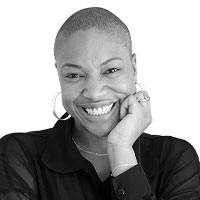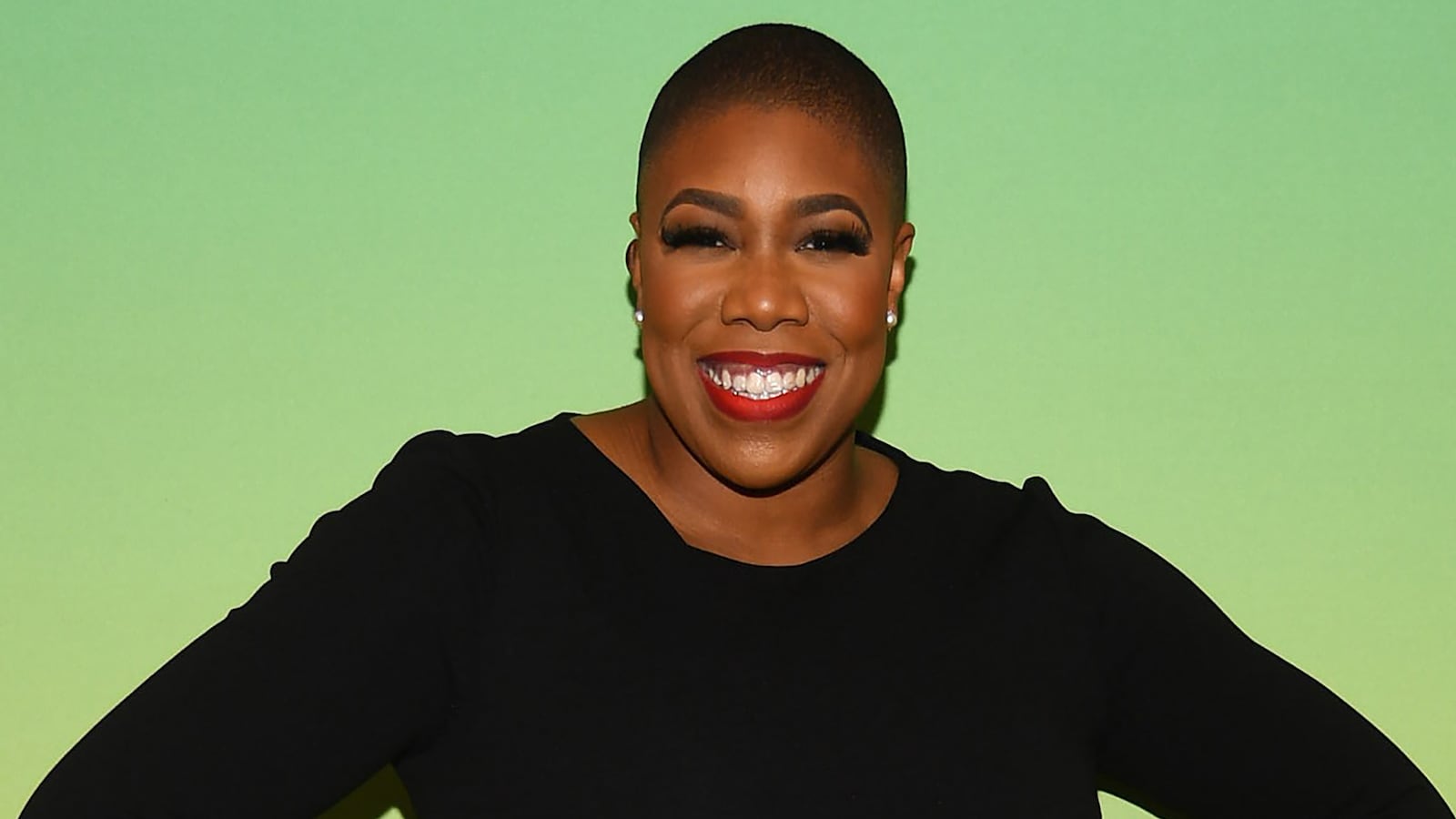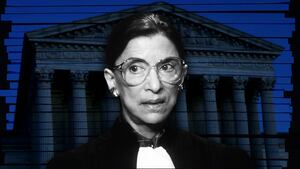This shouldn’t be as big a deal as it is, but Symone Sanders’ new MSNBC show, Symone, is a very big deal—representing far more than the sum of its parts.
Symone isn’t just another cable news programming pivot, it’s historic: For the very first time, a bald Black woman has her own national TV show.
Sanders is no newbie when it comes to media visibility. She’s best known from her work with Sen. Bernie Sanders—she was a TV fixture during his 2016 presidential campaign—and later as an adviser for Joe Biden’s 2020 presidential campaign. If you follow politics, you’ve seen (and heard) Symone Sanders.
As a bald Black woman who also works in media, and who willingly shaved her head (as Symone did) 11 years ago, I can’t help but celebrate this as a major accomplishment for the host and a significant step forward for the country. Seeing this type of representation of bald Black women in the media, and on a major platform, is revolutionary.
If you’ve ever watched Sanders you see that she is dynamic, exudes confidence, and embraces her baldness—which is something that any bald woman will tell you can sometimes be hard to do. The patriarchy’s views on how women should be wearing their hair are firmly entrenched in American society, and broadening Americans’ horizons on the many ways women can be beautiful, professional, and authoritative is going to take some time.
“I'm a bald, curvy, Black woman from North Omaha, Nebraska, with a bedazzled nail, and I like a bold lip—and that's what I'm going to continue to be,” said Sanders in a recent BET interview.
Black women’s hair has been politicized, discriminated, and ridiculed for centuries. It’s made us believe that our natural beauty is ugly, undesired, and needs to be changed in order to fit in culturally. Black women for years have been subconsciously coerced by pervasive sexism and racism into spending a fortune on haircare products to avoid “short nappy hair” or in this case, being bald. And it continues to happen.
When Will Smith struck Chris Rock on live television at the Oscars last month, the debate over whether violence is ever acceptable and whether comedians go “too far” obscured the joke’s target. Jada Pinkett Smith, a successful, beautiful Black woman, was mocked for being bald—and not that it should matter either way, but her baldness is not by choice. She has been open about her struggles with alopecia.
In the workplace, there has been some progress, but not nearly enough.
The House of Representatives recently passed the CROWN Act (Creating a Respectful and Open World for Natural Hair), a hugely important piece of legislation that protects the rights of Black people and others to wear their hair however they choose, without fear of being punished or targeted at work. The bill passed the House in March, with a vote of 235-189 mostly along party lines, but it has a murky future in the evenly divided Senate.
At the state level, bans on hair discrimination have only been passed in a dozen states.
Without the CROWN Act, Black women will still have to show up to work unsure if appearing as their true selves will be deemed “unprofessional.” This is the case even more for broadcast journalists; Black women have been tormented for wearing their natural hair on TV—or are often given more air time and opportunities if they straighten and conform their natural hair texture to white European beauty standards.
I, too, have had unfortunate situations in professional settings with white and male coworkers trying to rub my bald head. One interviewer had the audacity to ask me if my hair was always bald.
Thankfully, Sanders is rewriting the script (literally) and refusing to allow stereotypes of being a bald Black woman keep her from accomplishing her dreams. “My hope is that me showing up every day as my authentic self, continuing to keep the bar high and substantive, not [as] a caricature of what people think I am, but truly just being myself—is opening up the door for other young people to step into their respective workplaces, wherever they are, and be comfortable with who they are,” said Sanders to BET. Like Sanders, I have always felt empowered, beautiful, and on top of the world as a bald Black woman. But many other bald Black women could still use the confidence boost, to let them know that they are truly enough.
For those of us who are already there, we’ll continue to showcase how being a bald woman is fierce—and something that you have to “own” proudly, regardless of the negative and harmful rhetoric that has been put upon us.
States that have not already passed anti-hair discrimination bills need to recognize that they have a duty to ensure all the barriers meant to preserve white spaces in the workplace, school, housing, and more are knocked down for good. Only when Black people have the freedom to be themselves, and look like themselves, will true equality be possible.








